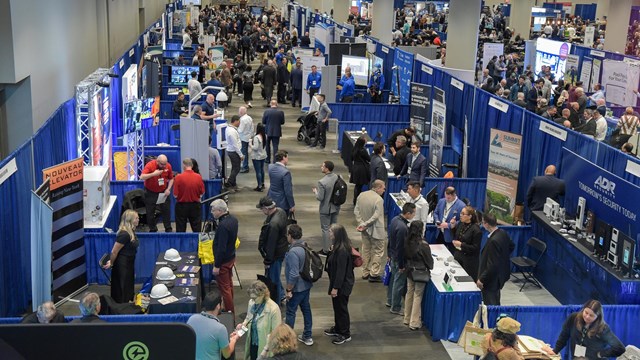
A community association or homeowners association is the cornerstone of a building community. The community association or HOA maintains order and continuity by preserving architectural integrity, maintaining the common elements, protecting property values, and often providing for recreation and/or entertainment for the community. Board responsibilities may run the gamut from basic maintenance to sophisticated special services. To be effective a community association or HOA needs a strong board of directors or managers who, individually and collectively, understand the role and mission of the association. Operating a community association or HOA involves many of the same responsibilities as any other business, although board members are volunteers and generally serve without compensation.
While some board members may have pertinent experiences from their personal lives—accountants, attorneys, brokers, and managers—most are only armed with a desire to serve their building communities. A newly-elected board member will need solid instruction and training to fully understand their role and fiduciary duties. Serving as a board member can be a valuable service and a rewarding experience, but like any other position, proper training and instruction is a must. So who performs the training, and when and where do the instructions take place? There is no one simple answer, but there are several excellent options for motivated boards and board members.
Building an Informed Board
New York-based manager Steven Greenbaum, a 35-year veteran in the industry, believes in something he calls “succession planning” which is a way to identify good candidates for future board positions. Greenbaum looks for interested and/or involved residents who may or may not be serving on a committee. He invites those individuals to sit in on a board meeting and observe the board in action. The visitor can see the nuances and timing of an actual meeting, and observe which board positions might be a good fit for their talents and interests. Greenbaum may suggest that the individual serve as an assistant or intern. During this phase, a prospective board member can observe and participate in board functions such as reading, presenting and understanding a report. Additionally, Greenbaum supplies and reviews two years-worth of minutes for assistants and/or new board members.
Raymond Dickey is president of Brainerd Communications, publisher of AssociationHelpNow, and the executive director of the Big Apple, Hudson Valley, and South Carolina chapters of the Community Associations Institute (CAI). He too believes in a proactive approach to board member development. “If you know someone who is interested in running for a board position, include them as much as possible in board activities prior to their being elected into their position,” he says. “This way, when and if that person is elected, they can hit the ground running. Also nominate potential board members from those who are regularly at meetings. These people already know a great deal about current issues in the building or association.”
(CAI has a Nevada chapter as well. You can visit their website cai-nevada.org for information. )
Like Greenbaum, Dickey favors having new board members shadow a seasoned board member, “This will enable a seamless transition when that seasoned member’s term is up,” he explains.
Dan Wurtzel, president of management firm FirstService Residential New York (FirstService is the largest community management company in North America), believes that some of the responsibility for educating new board members might lie with the manager themselves. “It is in the best interest of all parties to bring new members up to speed as quickly as possible so that they can be effective contributors,” he says.
His own firm does that by preparing a Board Member Resource Guide, detailing the responsibilities and fiduciary duty of new board members. This guide provides new board members with current and recent year’s audited financial statements, the status of pending projects, current goals and recent achievements, service contract analyses, insurance information and schedules, and evidence of regulatory compliance. “This indispensable reference book also contains the building’s offering plan, declaration (condo associations), proprietary lease (associations), bylaws, and house rules, as well as minutes from past board, special, and annual meetings,” states Wurtzel.
Greg Carlson, president of the National Association of Housing Associations (NAHC), does not mince words when it comes to educating boards; “No training is not acceptable.” He acknowledges it takes some time for a new member to get up to speed, and the learning curve can bog down a meeting when new members frequently ask for clarity and explanations. That’s where having trained board members can help.
New York-based attorney Marc H. Schneider of Schneider Buchel says: “There are several avenues where training and information are available for a board member to learn how to do a better job.”
Schneider recommends utilizing the professional expertise of one's association manager, the board’s attorney and accountant to prevent mistakes. “They are your biggest resources,” he explains. Schneider also has personal knowledge of the issues boards frequently face since he has served as board president for his own co-op. “I know what it means to have a knock on the door at midnight,” he says.
Utilizing Outside Tools
That being said, while Schneider recommends utilizing your board professionals as a first line for training, he doesn’t suggest stopping there—he recommends and contributes to local board educational opportunities. Schneider regularly teaches classes on how a board should deal with requests for reasonable accommodations and/or modifications under the Americans with Disabilities Act (ADA) and is a frequent speaker at real estate seminars.
Other pros also make it their mission to prepare new and returning board members for the duties and challenges of running a successful, solvent community. In his role with NAHC, Carlson oversees annual conferences nationwide for board training, and even does some training himself. Additionally, he provides a six-hour course for boards motivated to improve their knowledge and performance. “I visit the building community, obtain their documents, and teach a professional training for the board,” he says.
At a local level, Carlson also encourages the use of various organizational websites for information on classes, trade shows and events. “The Cooperator's annual Expos offer many educational seminars, as well as opportunities to meet with vendors and industry professionals.” Carlson also recommends monthly trade publications like The Cooperator (which includes The Nevada Cooperator) for regular reading by all board members.
Greenbaum agrees on utilizing any and all local opportunities for board education and also suggests that board members attend The Cooperator Expos. “They're one-day events, a couple of times a year, and well worth the time,” he says. (For information on The Cooperator Expo Las Vegas, which takes place on Tuesday, March 26, 2019 at the Rio All-Suite Hotel and Casino, visit lv-expo.com).
“There are a great many professionals, including engineers, attorneys, bankers, insurance specialists, and others who focus solely on the community association and HOA industry,” he explains. “The information made available by these folks is invaluable to new and current board members.”
All the Moving Pieces
Board members, says Schneider, must act in the best interest of the building or the building community, putting personal interest aside. He states, “When walking into the board room, take off your 'I' cap and put on your 'we' cap.”
And Dickey offers one last piece of advice for all board members: “Remember that this industry is constantly changing. Laws change; new obstacles come up—such as ways associations deal with Internet security or recent powerful storms. A standardized orientation is great, but the pursuit of knowledge should never stop.”
Staff writer Michael Odenthal contributed to this article.






Leave a Comment